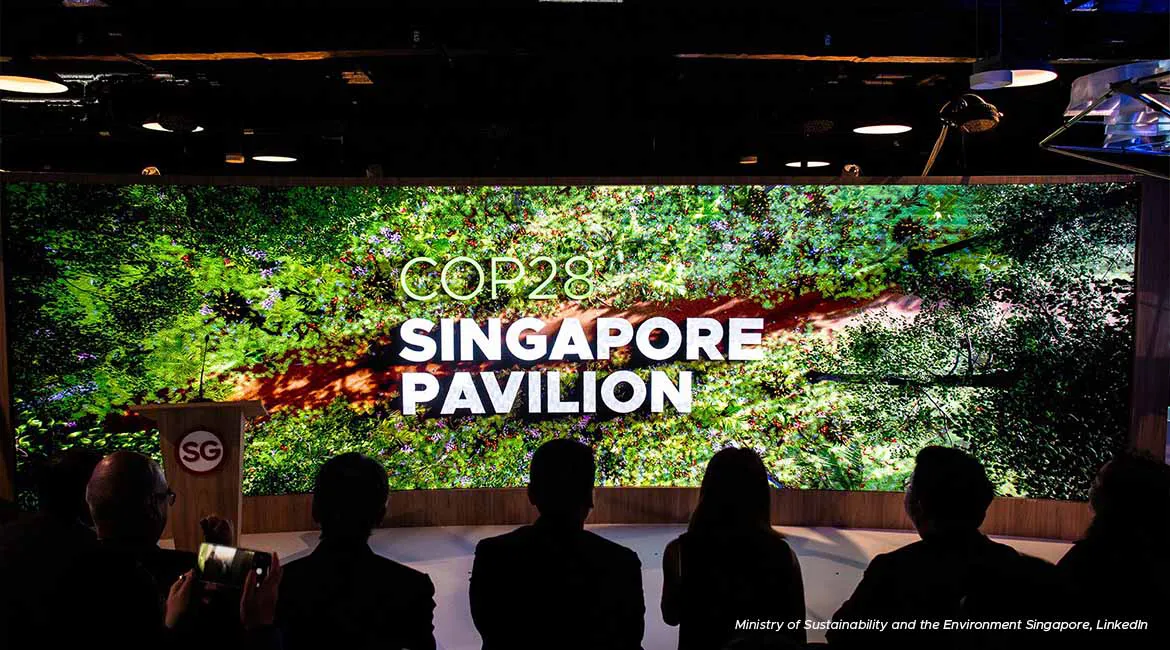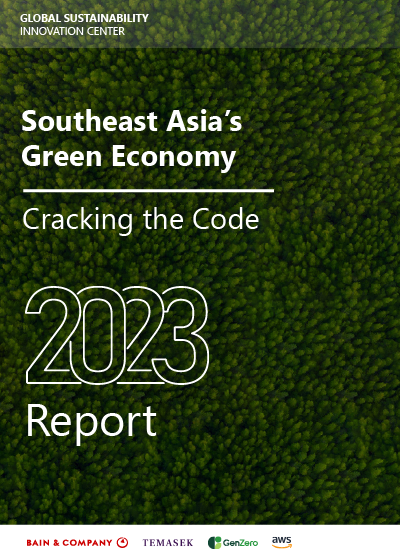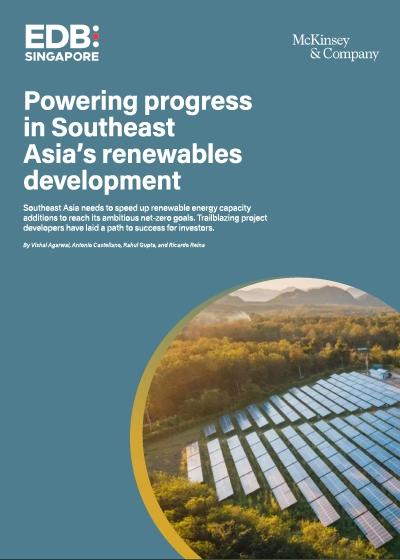Singapore is leading the charge to create international partnerships that will channel much-needed funding towards greening the region, and hopes to raise US$5 billion (S$6.6 billion) to finance the effort.
This was announced on December 2 by Senior Minister Teo Chee Hean, who delivered Singapore’s national statement at the World Climate Action Summit. The event was part of the United Nations COP28 climate conference in Dubai, and SM Teo spoke on behalf of Prime Minister Lee Hsien Loong.
Amid heightened geopolitical and economic uncertainty, he said, the world is far from achieving its climate goals. Instead of capping warming at 1.5 degree Celsius, it is instead heading towards a 2.1 degree Celsius to 2.8 degree Celsius increase by 2100.
The first Global Stocktake – an inventory of how countries are taking climate action – presents a timely opportunity for the world to correct its course to keep the target of 1.5 degree Celsius within reach, he stressed.
“This can only be achieved if we deliver substantive, inclusive, and balanced outcomes at COP28 across mitigation, adaptation as well as means of implementation.
“At this critical juncture, we need to foster even stronger multilateral cooperation than before,” he said, noting that Singapore was reaffirming its commitment to domestic climate action, regional partnerships, and global collaboration.









